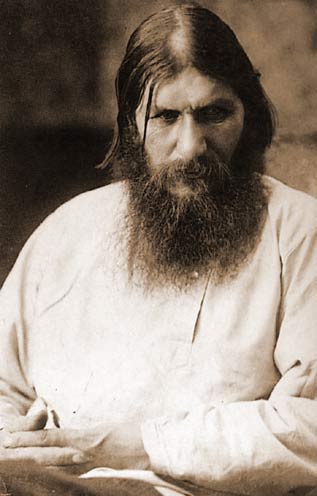 |
| Without a prophet you can't have Civilization |
Thus says the
LORD, "For three transgressions of Israel land of Egypt
An
ancient prophecy, also known as Amos 2:6-10
What does
God do when a king or a nation or a town does the opposite of their command
from God? What if they oppress instead
of assist the poor? What does God do,
how does He right the wrong?
Well, in ancient times, God would
first send out a prophet. He might send
an Elijah, to pronounce punishment on a nation,28 or he might send
an Elisha to reform the government.29 But usually God will first send a
spokesperson, a warner, to clearly inform the people what would happen if they
continue in the route of oppression.
This is Amos.
Amos was a shepherd, who cared for
his flock and plowed his fields. He
wasn’t doing much one day when God spoke to him—‘Amos, you’re my prophet now,
go out and tell the king what I said.”
Amos was shocked, “I am no prophet!
Do you see me flailing around like a prophet? Do you see me speaking to kings? Do you see me trying to grab the ear of the
high and mighty? I’m a humble man, just
a shepherd.”
“Try again, Amos—I make
prophets, and so that’s what you are.”
 |
| Rasputin was quite the ladies' man |
Most prophets of ancient days weren’t of the John the Baptist
model. Most of them didn’t hang out in
nowheresville, prefering their mesquite raw, straight off the tree, and hold
the meat, please. No, most prophets
liked the high life, the rich clothes, the occasional orgy (when they aren’t
fasting, of course), and getting the attentions of the nobility—especially the
female nobility. Most ancient prophets
followed the model of Rasputin rather than Gandhi. The occasional trance, a flood of flattering comments,
a lucky break in a prediction and a number of sermons against the king’s
enemies and a prophet can have room and board for life, as well as a
significant advisory position.30
This model of
prophet—shockingly!—led to much abuse. I
know it’s hard to believe, but many prophets of this type didn’t actually hear
from God at all!31 Some of
them might even be said to—and I say this in fullest confidence—be deceiving
those they spoke to. This is why God had
to pull his true prophets from different stock.
He didn’t want his prophets to be concerned primarily with the desires
of the high and mighty. Rather, he
wanted his chosen spokespeople to say the hard truths, and to speak for the
lowly and needy. Thus, God made unlikely
choices for prophets—Jeremiah, the young; Michaiah, the irritating; Jonah, the
xenophobe; Habakkuk, the questioner of God; and Amos, the lowly shepherd.
Well, Amos had heard prophets
before, and he knew that they flattered the nation and preached against the
kings enemies. But Amos had a judgment against Israel —a
nation his own home (Judah Israel Damascus
“Damascus Jerusalem , not Carmel
“Gaza Tyre , Edom ,
Ammon, and Moab
“As for Judah Judah Judah
Now
it was time for the coup d’gras. “But Israel Egypt
This
rampage became so heated, that a priest, standing by his king said, “Why don’t
you go back to Judah
Amos responded, “I am not a
professional prophet, but a shepherd, called by God to come here and speak to
Jeroboam. Because, you priest, are
complaining about God’s messenger,
simply because he isn’t saying what you like, then your wife will trade
her sexual favors to strangers for food and your house will be divided and sold
to immigrants!” 32
A
prophets life isn’t easy. It isn’t easy
to tell people with power and authority God’s true message that they’re messing
up and will face judgment unless they change their ways. It’s not a popular message. But God has always found someone to say
it. Most of the time, God was telling
his people to live according to His law, that he gave to Moses. And very frequently, he was reminding them to
do right by the poor. Isaiah told the
people not to steal from the poor.33
Ezekiel told them not to take interest on loans to the poor.34 Jeremiah reminded them to defend the needy in
the court.35 And all of them,
at one point or another, commanded the people to assist the poor when they were
in need—do acts of charity.36
To not give to the needy was a sin before God, disobedience to his law.
Notes:
28. I Kings 21
29. II Kings 9
30. An excellent example of the
difference between the professional prophets and the God-called prophet is in I
Kings 22.
31. Kind of like how the present system
of having a professional salary for a pastor doesn’t really call the
God-inspired so much as the money-educated.
32. Ouch. That had to hurt. It really happened, too. The last few paragraphs are a summary of Amos 1-2, 7:10-17.
33. Isaiah 3:14-15.
34. Ezekiel 18:15-17.
35. Jeremiah 5:28-29.
36. For example, Isaiah 58:5-7; Ezekiel
16:49; Daniel 4:27; Amos 5:12; Zechariah 7:10.


No comments:
Post a Comment